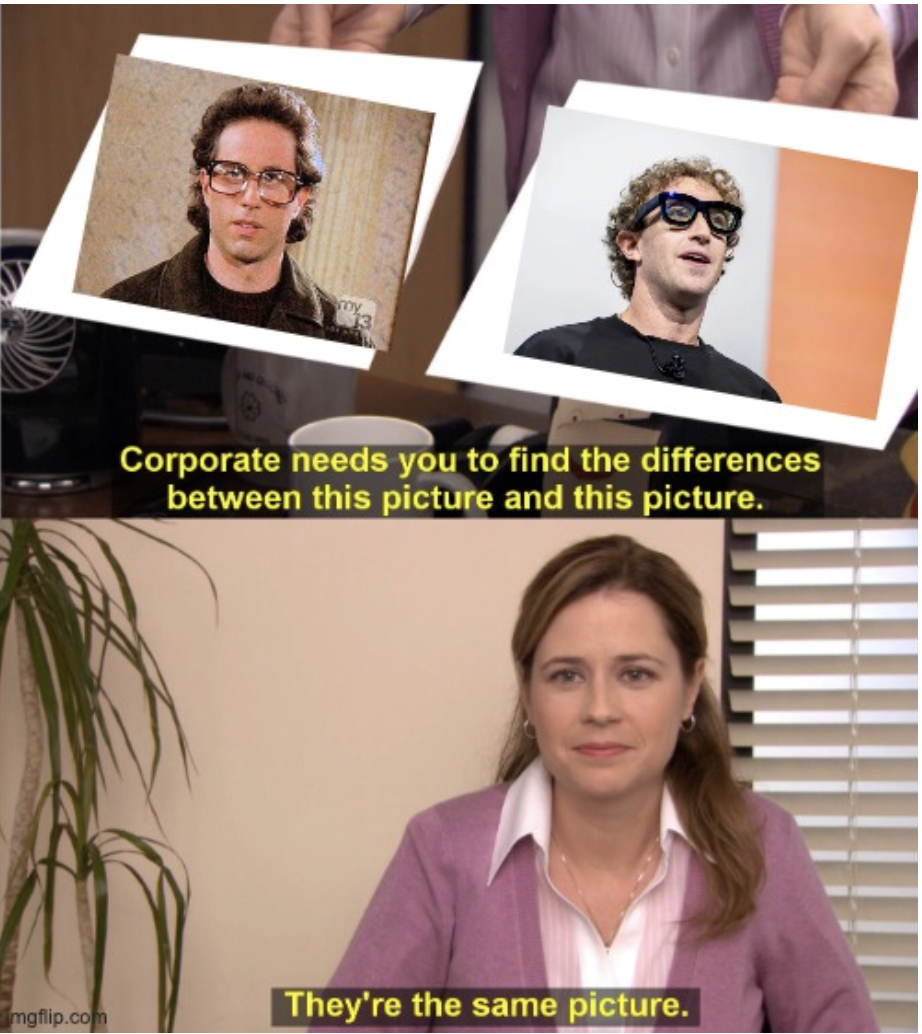Tuesday September 30, 2025
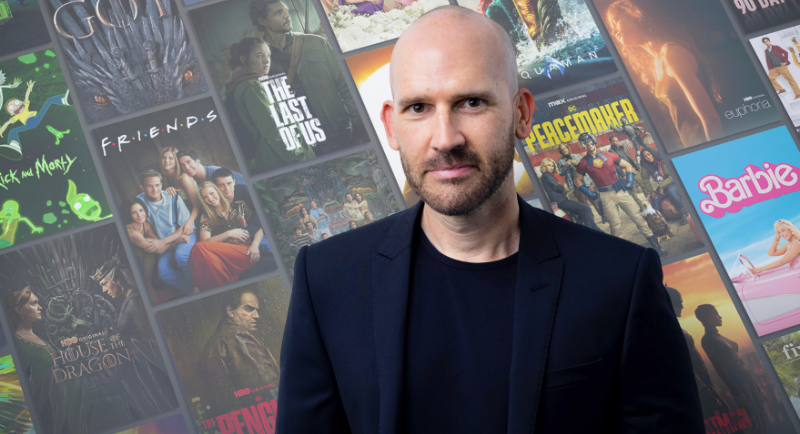
From launch to longevity: Michael Brooks on how HBO Max is turning a ‘rocketing start’ into lasting growth
Six months after HBO Max’s Australian debut, the real story is just beginning as the platform faces the task of converting early success and a high-value audience into lasting market share.
Following a star-studded launch, quality-over-quantity content strategy, the swift rebrand to HBO Max, plus a tightly focused ad-supported model, the stage is set for the future.
As competition intensifies in Australia’s crowded streaming landscape, Michael Brooks, Managing Director Warner Bros. Discovery ANZ, is clear about the challenge ahead, “We’re now positioning ourselves for that next stage of growth and momentum. It’s been a rocketing start,” he says.
New Roy Morgan data proves that that. It shows 851,000 Australians aged 14+ used HBO Max in its first full quarter, while awareness already tops 9.2 million. The audience is affluent and young, with 26.6% in the A/B socio-economic group, an average household income of $127,000, and over half under 40.
Clearly impressive, but how do you keep that momentum going?
“We definitely need to keep up the momentum, that’s very true,” he tells Mediaweek. “I think the teams executed an incredible launch across all areas, and it allowed us to bring a brand that was already known in this market, to the forefront, but we are now focused on what comes next.
“I think if you ask any consumer what matters when it comes to this it’s clear it’s content, and we know our teams in the US will keep driving those incredible titles through.
“This year, we’ve had some some huge hits, and we get the benefit of our amazing theatrical success,” he adds.
‘Mega-slate’
He points to highlights like Superman, the upcoming It: Welcome to Derry (the Stephen King–inspired series), and Task, closing out the current year.
Looking to 2026, he describes “a mega-slate,” including season two of the Emmy-winning The Pitt, new seasons of House of the Dragon and Euphoria, and a much-anticipated Big Bang Theory spin-off, Stuart Fails To Save The Universe, along with Dune: Prophecy and more to come.
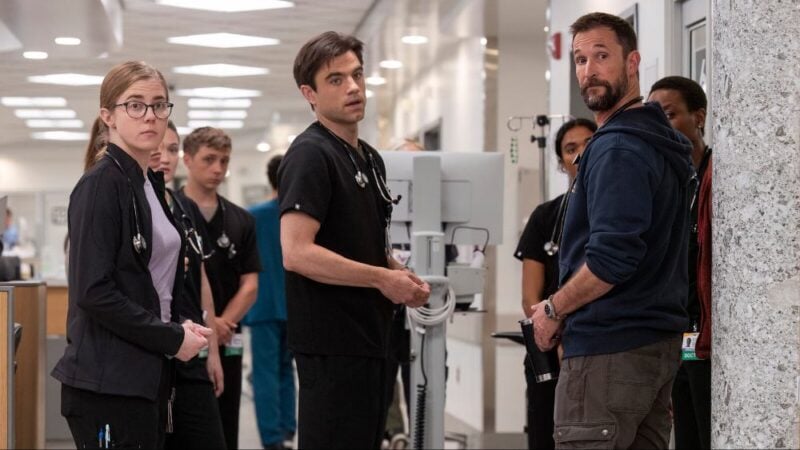
The Pitt
By consistently delivering such high-quality content, HBO Max has built a high-value proposition that might signal a subscription price hike following the launch. Wouldn’t that be a logical step?
“No, no changes to pricing at this stage,” says Brooks thoughtfully. “I think pricing, and being sensitive to pricing, is always something we’ll monitor. We’re really confident with the pricing that we entered the market with.
“I’m never going to rule it out, but at this stage, we’re just focused on making making sure everyone’s enjoying the product.”
And locally produced content? Surely that’s an important piece of the strategy?
“Yes, I think local content plays a really important role, and we are absolutely focused on creating our own local originals,” says Brooks, who is passionate about producing high-quality drama.
But before producers start banging down his door with pitches, it isn’t imminent.
“Unsurprisingly, our local originals will be scripted-focused,” he says. “We’re working through the timing of it now. We’re not open for business, because I don’t want to waste producers’ time. But what I can say is those conversations are certainly underway.
“We’re looking at the slates over the next few years and seeing where those new titles could be slotting in.”
Partnerships and profitability
Partnerships were central to HBO Max’s Australian launch strategy, and that continues through the next phase.
Brooks says the streamer is “really concentrating on and spending a lot of time on” its Nine Entertainment partnership, which underpins the ad-supported tier.
“It’s early days,” he notes, “and what we’re looking at, at the moment, is how we work closely with them and make sure we’re able to monetise the over-performance of the service.
“That’s not easy when it’s a brand new service in market. But we’re watching it closely. Digital ad sales is a huge growth business. I think there’s a third of all subscribers in this country that are on an ad tier. So that’s a big market sector that we want to target.
“It’s something we’re really concentrating on and spending a lot of time on. A lot of my individual time is spent looking at our ad tier, or looking at our ad-sales process and working with the Nine team to enhance that.”
The thinking is similar on distribution. Brooks points to HBO Max’s long relationship with Foxtel as the reason for launching with a single bundle rather than a wider wholesale strategy: “That bundle is quite strategic for us. It allows us to continue to appeal and work with that Foxtel base, which is an important cohort.
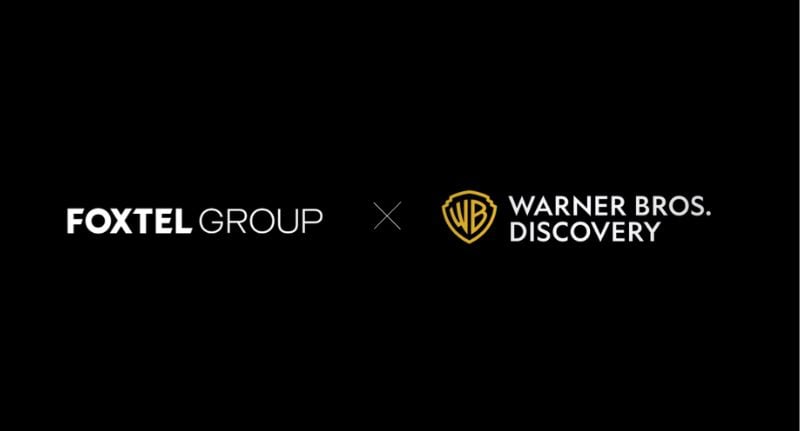
“The reason for not rolling out a broader wholesale strategy at the start is because we were confident that the service was going to perform well at launch. That was the the overriding factor – we felt like we still had a partnership which gave us more reach and more scope, but we were also maximising the retail window.”
On September 4, HBO Max also announced it was available in Australia via Prime Video as an add-on subscription, offering titles from HBO, Warner Bros., DC, and more.
Top three player
So, in another 12 months, what does success look like to Brooks and his team? Where will HBO Max be sitting then?
“We want to be a top three player. We want to be in that top three,” he says without any hesitation.
“We can get there and we will get there. Is it going to be in the next 12 months? Well, we’ll wait and see. We’re certainly ambitious about that.
“If you look at other regions, we’ve got an HBO Max and Disney bundle in the US, which has been incredibly successful, right? That’s not something we’re looking to replicate in this market at this stage, but it’s not to say that we wouldn’t be looking at other partnerships and other conversations in this market to expand our reach.”
“There’s ways you can evolve things. And I also think that it’s a changing, shifting strategy that streamers weren’t open to doing before. We started streaming to get away from ads and commercials, and now it’s one of the biggest growth areas, so things fluctuate and I don’t think anything’s off the table.”

JB Perrette
When JB Perrette, CEO and President of Global Streaming and Games at Warner Bros. Discovery, arrived in Sydney for the platform’s launch, he openly said he wanted HBO Max in Australia to be profitable within three years.
Days later, James Gibbons, President of Warner Bros Discovery for the APAC region, echoed that ambition to Mediaweek. The question now is, how does Brooks feel about that target?
Unsurprisingly, he remains tight-lipped on specifics, but the tone is unashamedly and rightfully confident, “We set ambitious targets for HBO Max in Australia, and these first few months in market have exceeded our expectations,” he says.
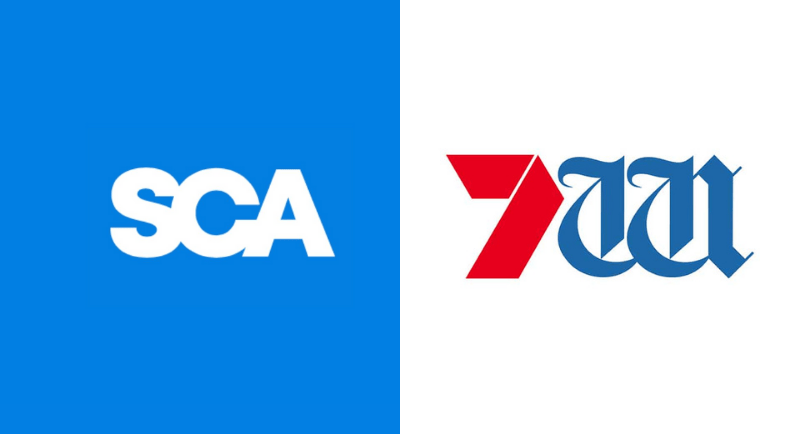
Seven West Media and SCA agree to merge
Seven West Media (SWM) and Southern Cross Media (SCA) have agreed to merge, in a deal that would create one of Australia’s largest integrated media companies.
The scheme of arrangement, announced this morning, will combine the businesses’ free-to-air TV, audio, streaming, digital and publishing assets – bringing together metro and regional reach under one umbrella.
A new scale play
The combined group will target the core 25–54 demographic, offering what both sides are calling a “one stop shop” for advertisers.
The merger will see SWM shareholders receive 0.1552 SCA shares for each SWM share, resulting in a near-even ownership split – 49.9% to SWM investors and 50.1% to SCA shareholders. Both boards have signed off, with Kerry Stokes AC confirming SWM’s unanimous support.
“The combination of these two companies brings together the best creators of media content in the country, delivering significant financial and strategic benefits for SWM shareholders,” Stokes said.
“This is an important merger, as the combined company will be better able to serve both metropolitan and regional viewers, listeners, partners and advertisers.”
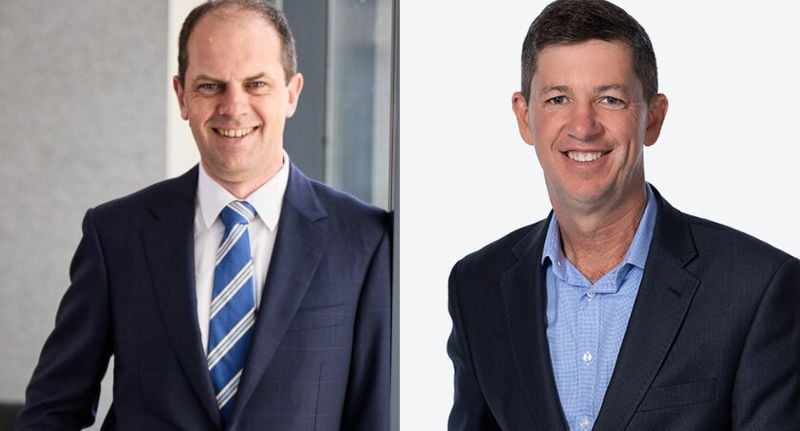
SWM CEO Jeff Howard and SCA’s John Kelly
Leadership and synergies
Under the proposed structure, SWM CEO Jeff Howard will lead the combined group, while SCA’s John Kelly becomes Group Managing Director, Audio.
Stokes will chair the board until 2026 before handing over to SCA’s Heith Mackay-Cruise.
Management is targeting $25–30 million in annual pre-tax cost synergies within two years, pointing to reduced duplication across corporate overheads, facilities and operations.
Revenue synergies are also expected, though still being quantified.
“By bringing together the complementary assets and brands of SWM and SCA, we are creating a truly national, diversified media organisation with extensive scale and reach,” said Howard.
Mackay-Cruise added: “This merger will create one of Australia’s leading Total TV, Audio and Digital platforms, with the scale, reach and diversification to better serve Australian audiences and communities.”
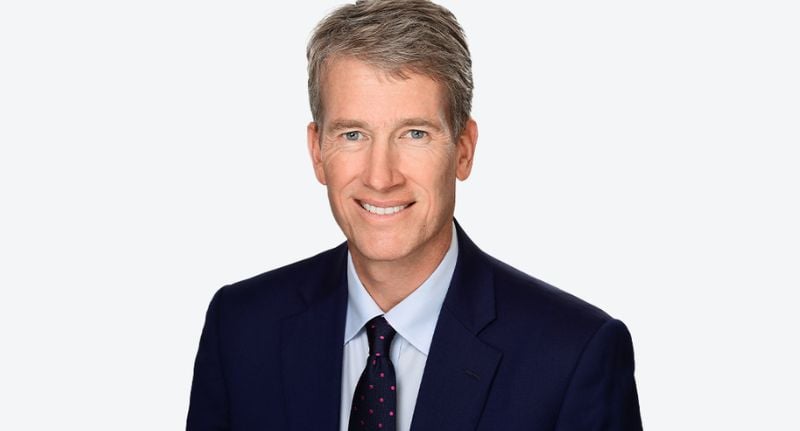
Heith Mackay-Cruise
What happens next
The deal will now move through the usual approval pipeline – ACCC, ACMA, ASX, shareholder and court sign-off – before an expected completion no later than Q1 2026.
SGH Limited, which holds 40.2% of SWM, has already signalled it will vote in favour.
If cleared, the merger would mark one of the most significant consolidations in recent Australian media history, reshaping the competitive landscape for both advertisers and audiences.

Sky News axes ‘Freya Fires Up’ after bacon stunt fuels review
Sky News Australia has axed its short-lived debate program Freya Fires Up just six weeks after launch, following an on-air stunt in which a guest draped raw bacon on himself and delivered inflammatory anti-Muslim remarks.
The fallout has pushed the network into a deeper review of its editorial processes, guest vetting, and risk management.
The turning point came on 21 September when guest Ryan Williams, billed as a conservative political strategist and social media figure, appeared in the Perth studio wearing strips of raw bacon.
He claimed the bacon would “protect him” from terrorists before launching into offensive remarks about Muslims.
The broadcast was cut short, with host Freya Leach later issuing an apology. Sky confirmed that the segment would not be published or republished on any of its digital platforms.
Mediaweek later revealed behind-the-scenes footage showing a studio technician assisting Williams with the bacon before airtime.
Senior programming executive Mark Calvert was also seen returning to the newsroom earlier than expected amid the controversy, underlining how seriously the network treated the incident.
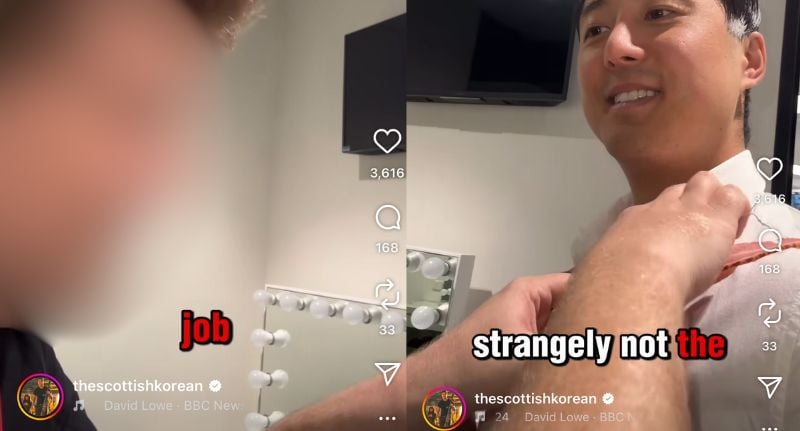
Behind-the-scenes footage showing a studio technician assisting Williams with the bacon before airtime.
From format changes to full cancellation
Initially, Sky attempted to manage the fallout by shifting Freya Fires Up from live to pre-recorded. But within a week, the network opted to cancel the program altogether.
A Sky News spokesperson said: “We have undertaken a thorough internal review, implemented its recommendations, and taken appropriate action with everyone involved in this incident.”
They added: “We took immediate action during the live broadcast to cut off the guest, our host promptly apologised, and we ensured the content was not published or republished to any of our digital platforms.”
Leach will remain with the network as co-host of The Late Debate.
The cancellation played out abruptly on Sunday night when viewers expecting Freya Fires Up instead saw Kieran Gilbert’s Sunday Agenda.
The change was so last-minute that Foxtel’s on-demand listings continued to show Leach’s program even while the replacement aired.
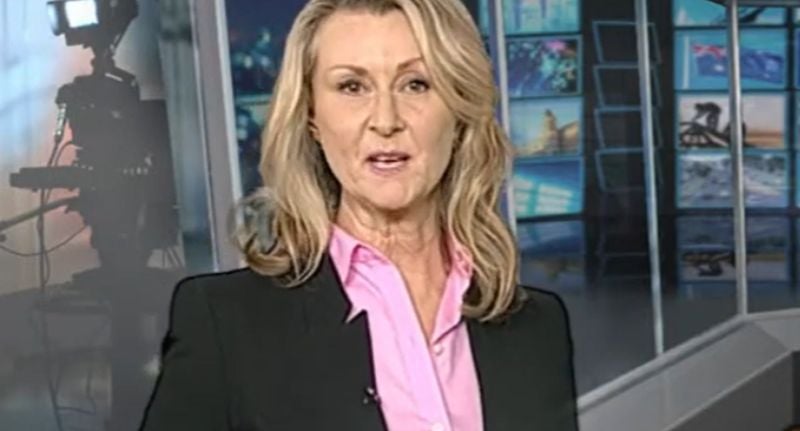
Remembering Ali Drower: a giant of Australian news
Alison (Ali) Drower, a much-loved newsreader and media leader, has died after a short battle with cancer. She passed away on Sunday, September 28, at Canberra Hospital, surrounded by her family.
Drower was a familiar voice to listeners for many years, working alongside Doug Mulray and his breakfast team where she became known for her sharp wit and warmth on air – and for collecting more than a few nicknames along the way.
Her career spanned both radio and television, and she rose to become Regional News Director for Southern Cross Austereo, a role that saw her lead and mentor teams across multiple markets.
In her most recent role, Drower was a freelancer for the Australian Radio Network (ARN) working to champion new talent and endlessly inspiring those who had been in the industry for several years, this writer included.
In her role at ARN, Drower worked closely with Fiona Ellis-Jones, Head of News and Information. Through tears, Ellis-Jones wrote the below touching tribute to Drower:
“Ali Drower was a giant of the Australian news industry. She had a rare mix of curiosity, strategic insight and sharp intellect that made her one of the most remarkable minds in news. Ali could look at any challenge and instantly see the opportunities. She knew the people who could make it work, and the resourcing and scheduling it required. She understood audiences, whether in Sydney or Scottsdale.
“She also had a wicked sense of humour and loved a good yarn – preferably over a good wine. Ali was deeply passionate about the role of regional journalism and dedicated to mentoring the next generation of radio talent.
“Ali was a true friend of ARN. She worked closely with us to redesign our entire news operations, led teams in NSW and Canberra, and guided our podcast commissioning in the regions. To me personally, she was both a dear friend and an invaluable sounding board.
“Ali taught me so much about being a commercial news leader – and about being a good human. I feel incredibly fortunate to have had her support and friendship for so long. I will miss her deeply.
“Her legacy lives on in the hundreds of journalists she mentored and the leaders she inspired. More than anything else, Ali was a mum and a wife.
“My thoughts are with her husband Rick and her beloved Zachy.”
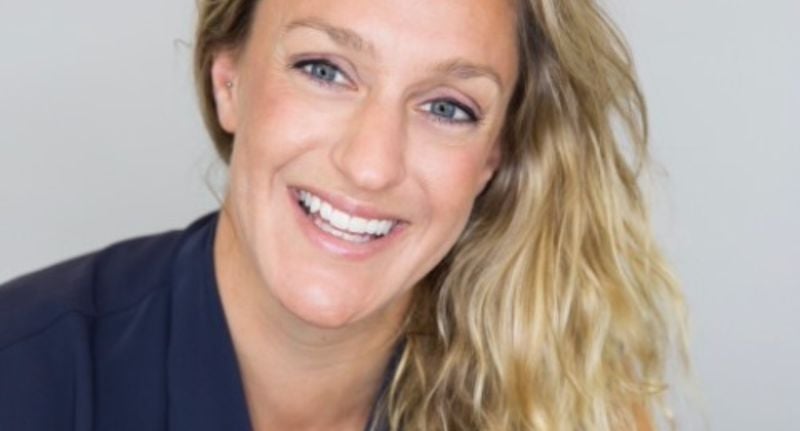
NOVA Entertainment names Evadne Janeke as digital commercial director
NOVA Entertainment has added to its senior commercial leadership team, naming Evadne Janeke as digital commercial director.
The move comes as the business continues to build scale across its digital audiences and expand its suite of commercial products.
Janeke joins from Seven West Media (SWM), where she was head of commercial product and digital operations.
She brings more than two decades of experience spanning publishers, media owners and agencies, including senior roles at News Corp, Pacific Magazines and OMD Australia.
The announcement comes on the same day SWM confirmed it had agreed to merge with Southern Cross Austereo (SCA) in a deal that would create one of Australia’s largest integrated media companies.
A source described Janeke’s appointment at NOVA to Mediaweek as “a huge loss for Seven”.
Janeke will report to NOVA’s chief commercial officer Nicole Bence, and lead digital sales, commercial product, data and digital solutions across the company’s streaming, podcast and retail platforms.
She steps into the role previously held by Michelle Golding, who has transitioned to director of digital strategy, capabilities and data.
‘A pivotal time’
“Evadne brings a wealth of experience and perspective from her extensive career working across media owners, agencies and publishers,” Bence said.
“Her appointment completes our senior sales leadership team at a pivotal time. As we scale our digital audiences, it’s critical we have the right products in market to deliver both the magic and the method behind world-class audio campaigns.
“With Evadne leading our digital commercial product strategy, we’re ensuring that Nova Knows Performance isn’t just a promise – it’s what we deliver every day,” she said.
Janeke, meanwhile, said she was excited to be joining the company during a period of investment and growth: “NOVA is investing in the right areas to expand digital reach and deliver measurable outcomes for advertisers. I’m excited to help shape the commercial products that will unlock new opportunities for clients and audiences.”
The appointment follows NOVA’s recent push to grow its digital footprint, including expanding its streaming apps onto Apple TV.
Janeke officially joins in October and will be based in Sydney.
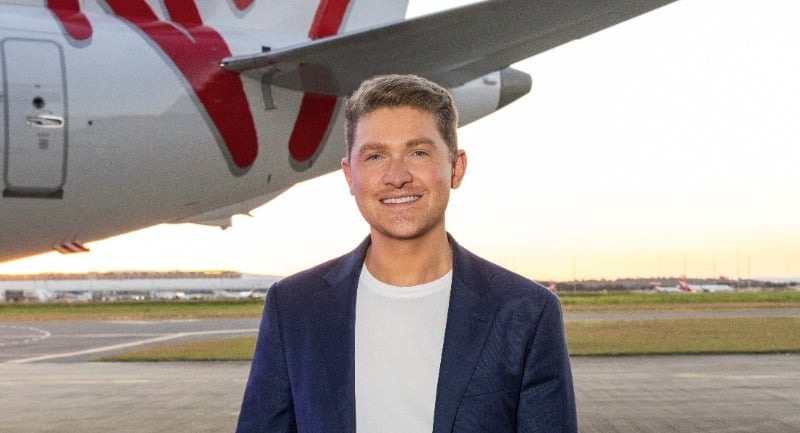
Virgin Australia appoints Matthew Ongarello as group head of PR and brand
Virgin Australia has appointed Matthew Ongarello as group head of consumer public relations and brand, marking his return to the airline after several years with Virgin Group in London.
Ongarello most recently served as head of news at Virgin Group, working across the company’s global portfolio. He previously held senior roles within Virgin Australia’s corporate affairs and PR teams. His career with the airline began while he was studying at RMIT, working at the check-in counter at Melbourne Airport.
“It’s a privilege to come home to Virgin Australia,” Ongarello said. “The Virgin brand has always been synonymous with creativity, innovation and heart. I look forward to leading our PR, brand and creative services teams as we continue to tell the Virgin Australia story in a way that inspires our people, partners and guests.”
In the new role, Ongarello will oversee public relations, brand strategy, and creative direction across both Virgin Australia and its Velocity Frequent Flyer loyalty program. He will be responsible for shaping the airline’s external reputation and strengthening brand positioning.
Virgin Australia chief marketing officer Libby Minogue welcomed Ongarello’s return: “Matthew’s deep understanding of the Virgin brand, combined with his international experience across the Virgin Group portfolio, makes him the perfect person to lead our PR and brand team during this exciting period of growth.”
The appointment follows a period of strong performance for Virgin Australia, which listed on the Australian Securities Exchange in June 2025. Earlier this month, the airline was named Australia’s Most Trusted Travel & Tourism Brand by Roy Morgan for the third year running.

Australia’s top loyalty programs revealed in Honeycomb Strategy study
Australians are signed up to an average of eight loyalty programs but only actively use five, according to Honeycomb Strategy’s latest research into program success. The Science of Loyalty: From Situationship to Relationship study analysed 52 of the country’s leading programs across retail, travel, finance, and subscription models.
The study ranked programs on membership, engagement, and impact on spend, with the top performers including Bunnings PowerPass, Coles Plus, One Pass, Woolworths Delivery Unlimited, Costco Membership, FlyBuys, American Express Membership Rewards, eBay Plus, Telstra Plus, and Uber One.
Founder of Honeycomb Strategy, Renata Freund, said many programs struggle to convert sign-ups into meaningful customer relationships. “The truth is that a large portion of Australia’s loyalty programs are great at driving the initial sign-up with a motivating benefit, but very few are translating that into ongoing engagement that ladders up to meaningful ROI,” Freund said.
A loyalty market under pressure
While Australians are experiencing a loyalty boom, with almost every major brand offering a program, high attrition rates remain a challenge. Emirates Skywards, Baby Bunting Family, Marriott Bonvoy, H&M Hello Member, and Club BCF were identified as the programs consumers were most likely to abandon.
The research also highlighted the growing influence of paid loyalty models. More than 70 per cent of Millennials and 65 per cent of Gen Zs now subscribe to paid programs, with the strongest performers being One Pass, Costco Membership, Coles Plus, eBay Plus, and Woolworths Delivery Unlimited.
Behavioural science at play
Honeycomb Strategy found the most successful programs leveraged behavioural science principles, including loss aversion, social identity, reciprocity, and cognitive ease, to drive long-term engagement.
“Seven in 10 consumers expect immediate benefits from their loyalty program, while 63 per cent quickly lose interest if the program doesn’t give them something new or valuable,” Freund said. “Brands are not just competing on benefits, they are competing for attention, and attention is scarce.”
The report concluded that loyalty programs focusing on frictionless engagement and habitual use were most likely to influence where consumers spend. It recommended that CMOs and insights leaders prioritise behavioural design over expanding benefit catalogues.
The full report, part of Honeycomb Strategy’s Digital Insights Series, is available here.
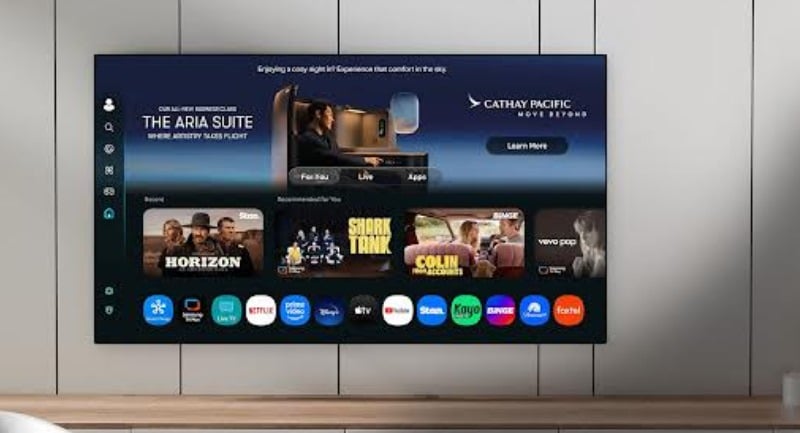
Cathay Pacific focused on connected TV with Aria Suite campaign via Samsung Ads
Cathay Pacific has launched its first multi-country Connected TV (CTV) advertising campaign in partnership with Samsung Ads, spotlighting its new Aria Suite to half a million affluent households across Australia.
The campaign, created by Publicis, ran as an immersive home screen takeover on Samsung Smart TVs. It reached almost one million households nationally, with 50 per cent of those households identified as high-income. The campaign aimed to generate awareness of Cathay Pacific’s new business class cabin across major routes including Sydney, Singapore, London and Vancouver.
With Samsung Ads holding a 45 per cent share of the Australian premium TV market, and half of its Smart TV households considered high income, the airline was able to achieve targeted reach among business class travellers. Ads were delivered in the evening, designed to align with the viewing habits of busy professionals, and highlighted the suite’s comfort by likening it to a night on the couch.
Edward Bell, General Manager, Cathay Pacific, said: “Samsung Ads has proven that it can provide us with the scale and flexibility we need from a global CTV partner. It was vital we reached a broad audience with our Aria Suite campaign, but without compromising on our desired high-income demographic. Samsung delivered on both counts.”
Sven Bally, Partner, Client Lead, Publicis, added: “The Aria Suite offers hotel-level luxury on long-haul flights so we developed an immersive creative in a relaxed setting that would bring that comfort to life. Placing the content front and centre on the biggest screen in the home delivered the impact we wanted for Cathay Pacific’s very first CTV campaign.”
Alex Spurzem, Managing Director, Samsung Ads Southeast Asia and Oceania, said: “Reaching a million Aussie households across five weeks – half of which are high-income – reinforces that Samsung TV households earn more and spend more. Cathay Pacific is the first Hong Kong brand to run a CTV ad campaign on Samsung Ads, showcasing how the region is evolving its focus to achieve brand cut-through in streaming-centric nations.”

Aussie kids defy orders making history for ABC’s ‘Do Not Watch This Show’
ABC’s latest children’s hit is built on one simple instruction: don’t watch.
Naturally, kids have done the exact opposite. Do Not Watch This Show, adapted from Andy Lee’s best-selling Do Not Open This Book, has become the biggest Children & Family launch in ABC iview’s history.
Since premiering in July, the series has racked up 115 million minutes viewed in just three months and averaged one million viewers across ABC Family and iview in its first fortnight.
ABC has already confirmed a second season for 2026, proof that telling kids what not to do might just be the smartest content strategy around.
‘No one is more disappointed than Wizz’
Lee told Mediaweek the runaway success caught him off guard.
“No, I did not and no one is more disappointed than Wizz who was really hoping no one would watch it,” he laughed.
“We knew the books resonated so well with kids but you can never assume that is going to translate to the screen. I’m thrilled it has been well received as it means we get to continue the fun. It’s been a joy to make and I’m super grateful to the ABC, Screen Australia and VicScreen for believing in the project.”
The show follows Wizz, a blue monster determined to stop children from watching. That hasn’t gone to plan. “Some children think they are really brave for watching it and want to gloat to me about how they have defied instructions and tuned in. I love that. I just hope we aren’t creating a whole generation of anarchists,” Lee joked.

Audience favourites and hidden lessons
While the premise may be tongue-in-cheek, young viewers have embraced the characters with surprising loyalty. “They each have a different favourite character but Douglas and Lime seem to be the top two,” Lee said.
He hopes the playful defiance also carries a message: “It’s okay to break the rules sometimes and it’s perfectly acceptable to question what people are telling you to find out for yourself if something is true. Mostly though, I want them to hear this message loud and clear: Do not watch this show.”
Yeah, nice try.
Season two: a bigger world, more cameos
Details of season two remain under wraps, but Lee hints that the world will expand. “I’ve been specifically told by the ABC not to give anything away about Season 2, I’m happy to say that we are expanding the world and you’ll even see Wizz leave the safety of his home. There are also plenty more cameos in the works.”
Behind the scenes, the creative team is also levelling up.
Season one’s “white void” caused headaches for animators, with inconsistent character and prop sizing. “We have since created a grid system that will be turned off at the very last moment so all characters and furniture will remain constant… we hope,” Lee said.
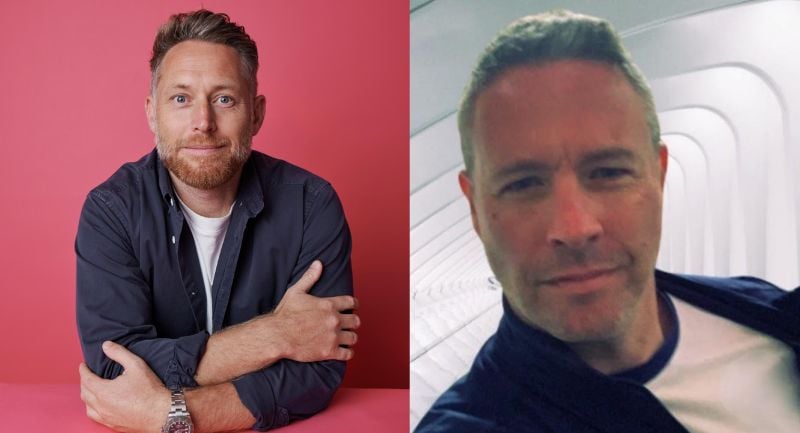
Those That Do partners with Gladcloud for hyperlocal social campaigns
Global full-service creative agency Those That Do has announced a strategic partnership with Ireland-based collaborative social media marketing platform Gladcloud, marking the platform’s first foray into Australia.
The partnership will combine Those That Do’s creative capabilities in brand strategy and consumer engagement with Gladcloud’s hyperlocal social activation model. Together, the two businesses will enable brands to build collaborative social media campaigns designed to drive foot traffic and sales through retail and hospitality partner networks.
Founded in Dublin, Gladcloud connects brand campaigns with the social media presence of independently owned retail and hospitality partners. The platform provides tools for content distribution, campaign management and performance measurement at scale, and already works with clients across beverages, food delivery, FMCG and travel retail.
Those That Do founder and director Ben Walker said the partnership offered brands a new way to integrate storytelling with localised execution. “Our new partnership with Gladcloud offers a unique opportunity to fuse strategy, storytelling and localised reach into a single, unified approach,” Walker said. “This new partnership is about introducing more brands to the power of combining strategy, brand narrative and hyperlocal execution to drive real-world results.”
For Gladcloud, the deal represents a key milestone in its global expansion strategy, with Australia identified as a priority growth market. Tyson Pearcey, Gladcloud’s chief growth officer, said the partnership would allow the platform to deliver more impact for brand partners across the region.
“Gladcloud will enable Those That Do clients to leverage the social media presence of retail customers at scale to increase engagement and local conversions,” Pearcey said. “By partnering with Those That Do, which has a strong market presence in Sydney and Melbourne, we’re strengthening our ability to deliver value for brand partners across the region.”
Established in 2022, Those That Do operates offices in Sydney, Melbourne, London and Dubai. The agency specialises in brand platforms, activation, experiences and training. Gladcloud, meanwhile, continues to expand its network of global partners, connecting brand assets with retail social media channels in order to deliver measurable, hyperlocal engagement.
Top image: Ben Walker and Tyson Pearcey
Media
Trump threatens global films with 100% tariff
As The Australian’s Joseph De Avila writes the details are thin, but the move doubles down on earlier threats and puts global studios – like Australia – on notice.
But it might not be time for a Bex and a lie down just yet.
According to Variety, the threat is being seen as a lot of hot air, with studios “privately skeptical” Trump will make good on his promise.
Comedians call out peers over Saudi comedy festival
The Sydney Morning Herald’s Derrick Bryson Taylor writes that Marc Maron joked about the… what’s the word I’m looking for here… that’s right, hypocrisy, on his podcast saying: “From the folks that brought you 9/11, two weeks of laughter in the desert.”
Then again, it seems not everyone can be bought, with Shane Gillies (who isn’t heading along) revealing organisers doubled his offer when he turned them down.
Read what Human Rights Watch has said about the event. Just a warning, now might be the time to have that Bex on standby.
How HBO Max is building lasting growth after a false start
Discovery ANZ’s Michael Brooks spoke to Mediaweek’s Frances Sheen, telling her: “We’re now positioning ourselves for that next stage of growth and momentum. It’s been a rocketing start.”
Legal
YouTuber legal fight tests anonymity online
404 Media’s Matthew Gault writes that lawyers say the subpoenas would endanger users and set a troubling precedent for online free speech, framing the move as an attempt to silence detractors.
AI
Creatives push back on AI copyright threat
According to Noah Yim in The Australian, the pushback comes after the Productivity Commission flagged a potential new exception for text and data mining, a move that would let companies legally scrape works to train AI models.
Gaming
Electronic Arts set for record $55bn private equity takeover
The Guardian reports the $55bn deal would see stockholders paid $210 a share.
Film
The Simpsons return to the big screen in 2027
The Hollywood Reporter’s Ryan Gajewski writes that Disney has slotted the second Simpsons movie into a July 2027 release date, taking over a spot once reserved for a Marvel title.
Companies
Meta’s smart glasses still stuck in niche territory
According to The Australian Financial Review’s Brian X. Chen and Eli Tan, since their 2023 debut, Meta has sold about 2 million pairs of its $460 camera glasses and is aiming for 10 million a year by 2026 – a tiny target for a company of its size.
